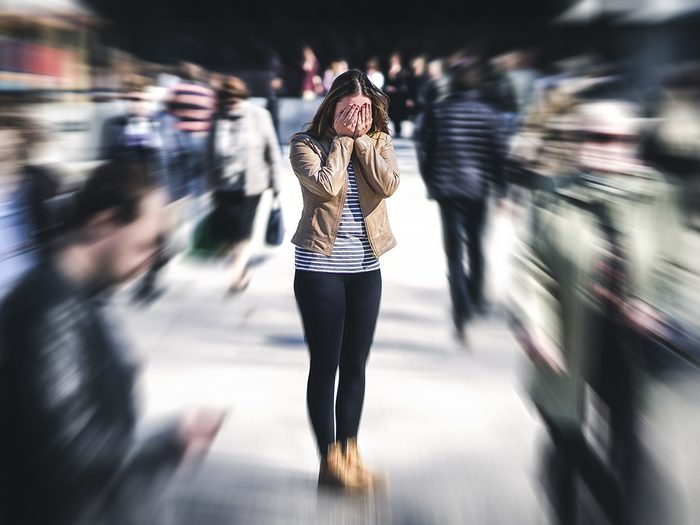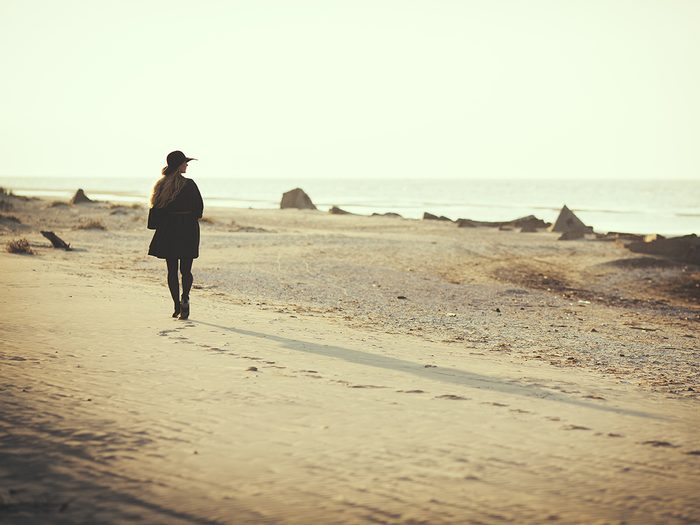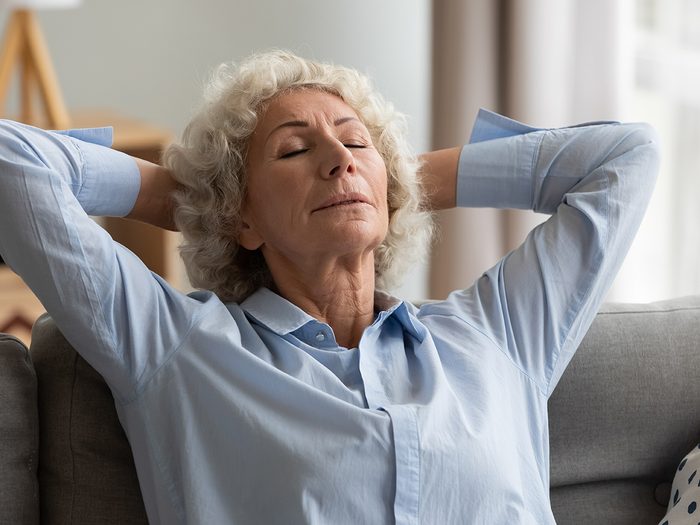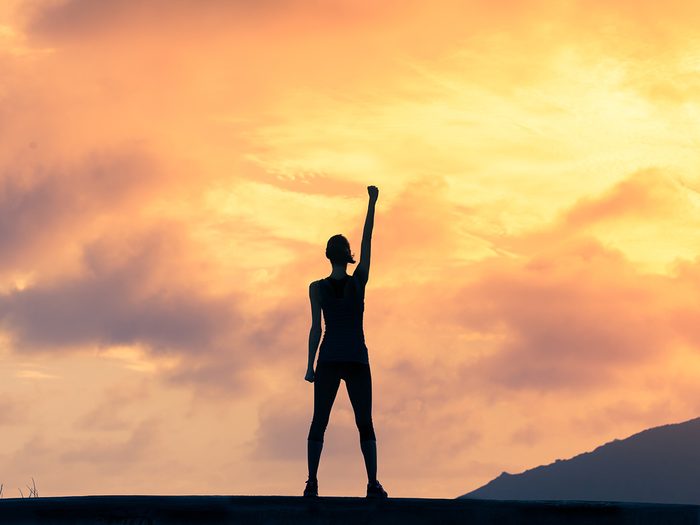
Yes, it’s possible to learn how to be brave
When Hélène Le Scelleur, a former captain in the Canadian Armed Forces, returned from Afghanistan in 2008, panic struck her almost daily. Too much quiet made her feel like something terrible was about to happen, while loud noises would send her heart racing. Banging sounds were the worst, and would immediately bring her back to the night when she witnessed an improvised explosive device kill two of her men. “I really thought I was going to die,” she says.
Rattled by this involuntary hyper-vigilance, the 45-year-old turned to alcohol to numb her fears and received a diagnosis of post-traumatic stress disorder (PTSD) in 2009.
While Le Scelleur’s experience is an extreme one, most of us have at least one fear just waiting to be triggered. Whether it’s a fear of flying or public speaking, or an anticipatory dread of contracting a serious illness, these trepidations can have a negative impact on our physical and mental health.
But even though learning how to be brave and escape the grip of our anxieties is challenging, it’s not impossible.

Get to know your fear
Many fears are useful, says Donna Ferguson, a clinical psychologist who works with the Centre for Addiction and Mental Health. “It’s what gets us out of the way of a moving vehicle,” she explains, but says there’s less utility when a recurring fear results in loss of sleep or appetite, or a diminished ability to engage with others.
When a terror goes so far as to interrupt one’s daily functioning, it’s important to begin the process of learning about it, ideally with others who can relate. For Carol Pasternak, a 63-year-old lesbian who was previously married to a man, the inability to come to terms with her new identity brought on severe depression and anxiety. The revelation that she was gay came when she was 39, after 14 years with her husband, when she fell in love with a female colleague. “I realized that I had only had this feeling once before—and I married him,” she says.
Pasternak’s affection for her husband and commitment to their three young children complicated her situation—she worried about the disruption that coming out would cause. Desperate to vent these feelings, she joined a support group of mostly closeted women that she discovered in the classifieds and secretly attended the out-of-town meetings.
“I lived in dread, all the time, of being discovered,” she says, but the group became a safe space to explore both her fears and her authentic self. “The burden lifted when I was able to tell my story out loud, and there’s a tremendous reduction of fear when you meet others who are going through the same thing.”
Need to get a burden off your shoulders? Here’s expert advice on how to tell someone a big secret.

Confront and observe your fear
Learning how to be brave often starts with the unpleasant work of exposing yourself to fear. For this, Ferguson often recommends cognitive behavioural therapy (CBT), a treatment that involves moving through a hierarchy of triggers, starting with those that cause the least discomfort. For a person who struggles with social anxiety, CBT might also involve inducing symptoms such as bodily shaking or a head rush in order to then walk a patient through their response and help them learn coping mechanisms.
Le Scelleur sees a psychotherapist regularly, but one of her greatest breakthroughs came when a friend invited her to a gun range. “The first time I went, I did freak out,” she admits. “But when I realized that nothing bad was actually happening, I started to feel less afraid.”
Inspired by this experience, Le Scelleur has put into place a series of actions that can be an inspiration to anyone who experiences recurring fears: acknowledge the anxiety; scan the landscape to confirm there is no present danger; and cycle through breathing exercises. She has a mantra she can repeat to herself until she’s at ease: “Fear does not equal danger.”

Turn your fear into your purpose
The angst that one will acquire a serious illness is common to almost everyone, and a Canadian Cancer Society survey from 2012 found that 70 per cent of Ontarians actively worry about being diagnosed with the disease. But even if that worst case comes true, other anxieties can follow.
When Michelle Prince, a 46-year-old mother of two in Windsor, Ontario, was diagnosed with advanced colon cancer in 2014, she was consumed by dread of the unknown—particularly of what chemotherapy would be like. “I didn’t know if it would hurt, if I would lose my hair, if I would spend all my time vomiting,” she says.
But Prince quickly realized there were ways to make the unpleasant experience manageable. Although the treatments were lengthy, and left her sick for days afterwards, her nurses were gentle and deeply compassionate, and she found comfort by socializing with family members and other patients. Now, after 65 chemotherapy sessions and counting, Prince is using her knowledge of the experience to help others.
Through a Facebook page, Prince posts educational and inspirational stories to help other patients, and regularly fields messages and questions. In May, she even live-streamed one of her chemo appointments at Windsor Regional Hospital, demystifying the process and offering simple tips—such as bringing mints to help mask the metallic taste patients often get during treatment.
Prince is now entering her fifth year with cancer; only 10 per cent of patients with her prognosis make it to the five-year mark. “When I was first diagnosed, it was all doom and gloom,” she says, but her newfound purpose to inform others has helped her cope with the uncertain future.
When it comes down to it, fear is often simply the anticipation of an unknown event that rarely comes to be. Pasternak learned that when her husband discovered her secret before she’d had a chance to tell him. She had worried that he would be so distraught that he’d be unable to function and would fall apart. “Instead, he was deeply supportive—he was the strongest of all of us,” she said.
For more expert advice on how to be brave, check out these confidence lessons you can learn at any age.